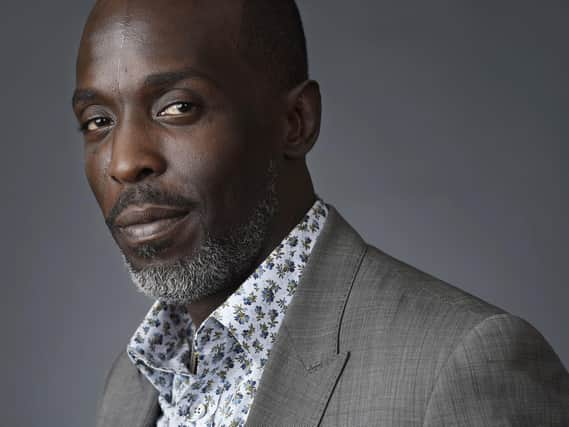Michael K Williams’ death a reminder of The Wire's greatness - Anthony Clavane


It is hard to think of a TV show that comes anywhere near to matching The Wire’s eminence. To call it a crime series doesn’t even begin to describe this Greek tragedy set in the mean streets of Baltimore.
Since the announcement of Michael K Williams’ tragic death on Monday, aged only 54, I have been reminding myself of its brilliance by dusting off old DVDs and fast-forwarding to the famous scenes featuring Williams’ iconic character Omar Little.
Advertisement
Hide AdAdvertisement
Hide AdAh, yes, DVDs. Remember them? Those old-fashioned things we all used to binge on back in the pre-Netflix era. Alongside CDs, they have been virtually rendered obsolete by the online streaming revolution.
In the first decade of the new millennium, however, shiny silver discs were still all the rage. The HBO TV network aired 60 episodes of The Wire between 2002 and 2008, but I waited for the box sets to come out, greedily bingeing each series in a whoosh of astonishment and delight.
To the uninitiated, David Simon’s masterpiece was an unflinching portrait of the gritty underworld of inner-city corruption, drugs and the police.
It might not sound like a barrel of laughs but Simon, who had spent 12 years on the Baltimore Sun as a crime reporter, entertainingly examined the human cost of the brutal projects, chronicling – with Runyonesque wit and Dickensian precision – the death of the American dream.
Advertisement
Hide AdAdvertisement
Hide AdIt was as much journalism as entertainment. Williams, himself, once eloquently explained why it was so ground-breaking. “It was the first show I saw that was created as what I call ‘edutainment’,” he said. “It dived so honestly into what was wrong in our society, from the police department to our lawmakers to our school system, and the media. It represented what was happening in our community.”
Of all the great characters in the series – including Idris Elba’s drug chief Stringer Bell, Wendell Pierce’s Bunk and Robert Chew’s Proposition Joe – Williams’ Omar was the most memorable.
His terrifying stick-up man was a mass of contradictions. He was the toughest gangster of them all, a combination of menace and charm, who whistled his signature tune The Farmer’s in His Den as he set about robbing drug dealers. “Omar comin’” the kids would cry out as the scarred, shotgun-toting robber prowled the streets.
At the same time, he was openly gay and the tender embraces he shared with his boyfriend caused as much of a stir as the on-screen kisses in Brookside, Ellen and Queer as Folk.
Advertisement
Hide AdAdvertisement
Hide AdI remember, also, those unexpected moments when he went shopping in his silk pyjamas for Honey Nut Cheerios, his favourite breakfast cereal, and was attacked while taking his grandmother to church on a Sunday morning.
Also, he was – in keeping with Simon’s critique of capitalist inequality – something of a Robin Hood anti-hero, stealing from rich dealers and giving back to the underclass.
Williams once attended a rally for Barack Obama, where America’s first black president revealed Omar to be his favourite character in The Wire. “That’s not an endorsement,” Obama quickly added. “He’s not my favourite person but he’s a fascinating character.”
This is what made the show so great. Why it remains so revered. Why it is frequently compared to Greek tragedies, Dickens novels and Shakespeare plays.
Advertisement
Hide AdAdvertisement
Hide AdIt was a coruscating depiction of life in a poor, violent, dysfunctional, 21st century American city, of the pointlessness of the establishment’s war on drugs, of the moral turpitude
of a power-obsessed elite and the brutality of the criminal classes.
But at the same time it was an intricate, nuanced and complex investigation into the human condition, subverting stereotypes and clichés about race, masculinity and crime.
To some, it was an enjoyably edgy, and at times extremely funny, cop show. To others it was a form of protest television, pointing the finger at myriad self-serving institutions; this is what separates it from other TV masterpieces such as The Sopranos, Mad Men and Breaking Bad.
Advertisement
Hide AdAdvertisement
Hide AdIt launched the stellar careers of Elba, Pierce, Dominic West and many others. But its true star was Williams, whose magisterial acting in one of the greatest shows in TV history will long stay in the memory.
Support The Yorkshire Post and become a subscriber today. Your subscription will help us to continue to bring quality news to the people of Yorkshire. In return, you'll see fewer ads on site, get free access to our app and receive exclusive members-only offers. Click here to subscribe.